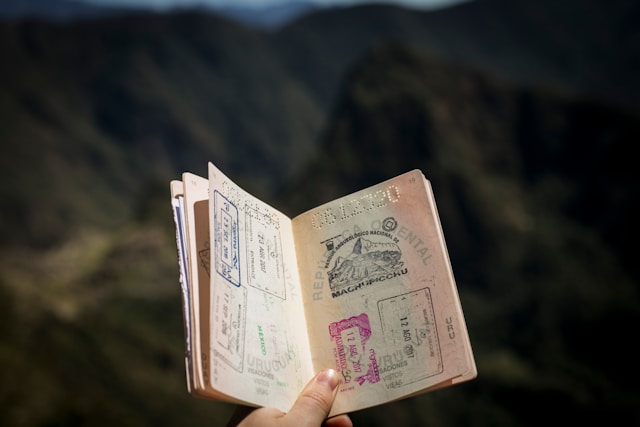Rapid Translate Team
In today’s world, people carry out lots of activities on an international scale. Businesses expand and develop branches abroad, and people further their studies in different nations. However, one individual, a translator, facilitates all these changes with the utmost accuracy. So, what makes a translator professional?
You may wonder what roles translators play in the sectors mentioned above. To understand this, you must realize that conducting international affairs often involves written communication.
Furthermore, due to linguistic differences, language barriers exist that only these professionals can scale.
Read on to discover more about the art of professional translation.

Table of Contents
Who Are Professional Translators?
Professional translators have undergone formal training and have the skills to translate text in different languages accurately. A translator trains to deliver general translation or focuses on specific niches.
The categorization of document types into niches facilitates the accuracy and precision of translations in all contexts. Translation work doesn’t consider grammatical accuracy alone; it goes beyond swapping words for their meanings in other languages.
If translation were a mere word-swapping exercise, anyone with a dictionary could do it. But that’s not the case. Document translations require consideration of cultural nuances to avoid offending the recipient or target market.
It also involves mental and technical brainwork, as translators must represent concepts without errors. Moreover, words in some languages don’t have direct equivalents in other languages. Therefore, the translator must capture and convey the meaning of the clause, phrase, or sentence.
Doing this requires an in-depth understanding of syntax and sentence construction in foreign languages. Therefore, a professional studies to acquire all the knowledge necessary to translate foreign documents meticulously.
It’s important to note that an expert translator can double as an editor, as most of them proofread their works. Additionally, there is a higher grade of professionals known as certified translators.
They are responsible for certifying document translations by providing a statement guaranteeing correctness. Hence, a certified translation is more valuable and has a higher acceptance rate than a regular translation.
Some institutions request certified translations, requiring people to search for certified professionals.
The Roles of a Translator Professional
Expert translators are indispensable in foreign applications, transactions, and procedures. However, it’s easy for individuals to assume they do nothing more than translate. But, their responsibility covers a lot more.
A translator plays many vital roles. Before accepting a task, translators must understand its requirements and analyze the possibility of producing an accurate rendition. They must then read, digest, and understand the document before translating it.
Note that translation entails replicating the correct terminology and format. It also involves replicating the writing style of the original document. To maintain the writing style, a translator must have excellent observational skills to note the original tone.
They also proofread to check for errors and make necessary edits and corrections. They ensure that the grammatical and technical accuracy is spot on. Translators write certification statements containing their profile and signature, which they mail or email with the translation if needed.
Additionally, translators need excellent conversational skills to guide clients throughout the process, so their responsibilities are great. Apart from interacting with clients, translators must hone their interpersonal skills as they sometimes work in teams.
You must also note that the translation job requires incredible mastery of language skills. Understanding the source and target languages enables translators to maintain cultural sensitivity by using non-offensive words. It’s a job that requires constant research to verify facts and keep up-to-date with the latest developments in the industry.
Doing this will enable them to understand effective quality control measures that they can apply to ensure customer satisfaction.
But remember that they often have a short time to perform all these responsibilities as they usually work with deadlines. The pressure can be very high with hurried services such as rush notarization or translations!

How To Become a Professional Translator
Most people with a flair for languages display interest in becoming translators. However, excellent translators develop their passion by attaining skills that help them stand out. Hence, one can become a translator without a degree.
So, interest in this career path leads many to wonder how to become a professional translator. The journey to becoming a translator starts with language mastery in one or more languages. Those you learn will serve as your source and target language specialization.
It’s usually best to focus on your native language and one or more foreign languages. That’s because native language speakers have an edge over others in the hiring process. To formalize your learning, you should get a degree in linguistics or any translation-related course.
You can also take courses from e-learning platforms to grow your knowledge. If you focus on a specific niche, you must train yourself.
For example, you can learn to translate medical documents. You can also consider joining the American Translators Association (ATA) to increase prestige.
Institute of Translators and Interpreting (ITI) is another association you can join. The next step is to gain practical experience on the job. Since learning on a paid job wouldn’t be nice, you can volunteer to gain experience and build your expertise.
As you should know, practice makes perfect. When you become a pro, you can create a portfolio to showcase to potential clients and use for pitches. Additionally, networking within associations and making relevant contributions can enhance your job prospects.
Moreover, you can also join professional platforms like LinkedIn to market your skills. While at it, don’t forget to keep your knowledge fresh by learning and applying the latest trends. You should also improve your vocabulary in your source and target languages.
The Rates of a Professional Online Translator
You may wonder how to set your fees as a professional online translator. Underpricing means you won’t be getting sufficient compensation for your effort. Similarly, overcharging could reduce your work rate and chase away customers.
However, pricing fees are not generic and differ depending on various factors.
1. Work Volume
Most people struggle with getting the correct price mark. We can’t tell you a specific fee to charge. However, we can inform you about the metrics you must consider before setting a fee.
One important consideration is the volume of work you have to go through. Translation can be time-consuming and requires a great deal of accuracy. Therefore, the more documents you have to translate, the higher your fees should be.
2. Complexity of Language Pair
Your source and target languages also influence your rates. Some language pairs or combinations are more common than others.
For example, the English-Spanish translation combination is in high demand. It’s easier than most languages, and so there are many Spanish translators available.
However, some languages, like Arabic, pose difficulties as their writing style, syntax, and nuances differ. Navigating two complex languages requires more effort, as you’ll have to translate to an intermediary language like English before proceeding.
Therefore, translators charge more for languages that require intense study and research.
3. Personal Qualification
You must factor in your qualifications as a translator. Though one can become a translator without a degree, appropriate educational qualifications set one apart. So, a translator without a degree charges less than one with a degree.
However, there can be an exception when one has notable certifications. Still, having certifications and a degree gives translators the leverage to raise their fees.
However, no one will pay highly for a poorly done job. So, your job quality should reflect your worth.
4. Delivery Deadline
Standard translations have prices different from certification. However, clients must always give their translators sufficient time to create perfect renditions. The decision of timing isn’t one for a single party to make.
Nevertheless, there are times when clients need their jobs done quickly. In such instances, the client pays an additional fee for the translator to prioritize, thereby fast-tracking translation delivery.
5. Mode of Pricing
Although fees vary depending on the translator, there are expensive, affordable, and cheap translation services. Knowing the average rate of translators is crucial. However, note that different services charge based on various metrics.
For example, some translation services charge per word while others bill customers per hour or page. Their average rates are $0.10 to $0.30, $15 and $20 to $30 respectively. So, you must set your pricing structure and factor in the other considerations for a start.
After developing your customer base, building your expertise, and upping your game, you can increase your price. But remember, always give your customers their money’s worth.

Working With Professional Translation Services
Professional translation services are the go-to source for anyone needing a professional translate job. But with various sources, it’s challenging to know which to choose. Though automated translation tools are rampant, they offer far less value than professional human translators.
You may want to use machine translation services and automation tools because they’re free. However, using them for official translations could ruin your chances of success, as these tools are sometimes inaccurate.
Therefore, it’s better to patronize human translators. You can contact freelancers, but for certainty of credibility, experience, and expertise, it’s best to use translation agencies. You can locate translation agencies near you and visit their physical offices. However, most people find it more convenient to contact them online.
Although numerous online translation services are available, consulting less experienced agencies instead of the pros is pointless. So, if you want to hire an online translator professional enough, contact Rapid Translate.
Our ratings and reviews provide all the proof you need to show that we constantly deliver excellent standard translations. Our translators are certified and specialized experts who’ll elevate your global communicative abilities.
So, place an order now and get elite translations at affordable prices!





